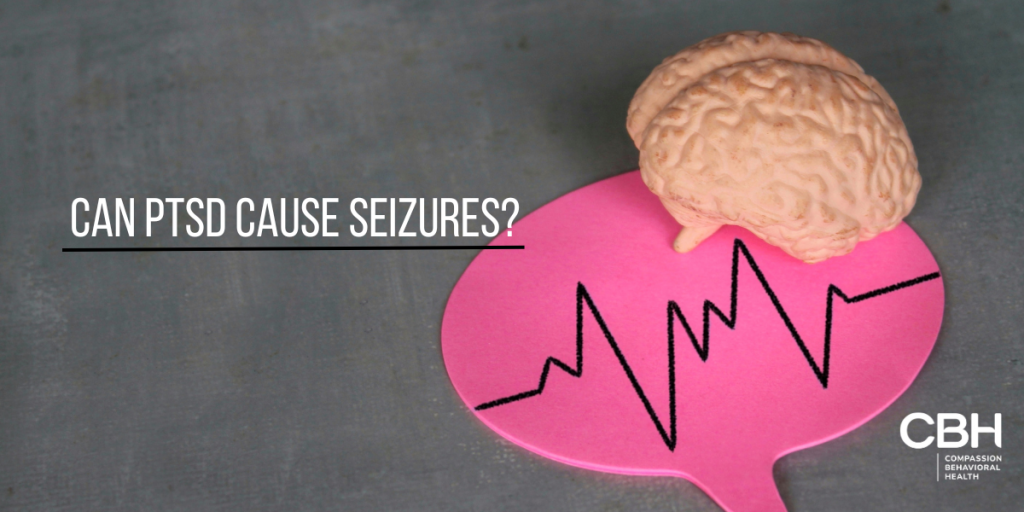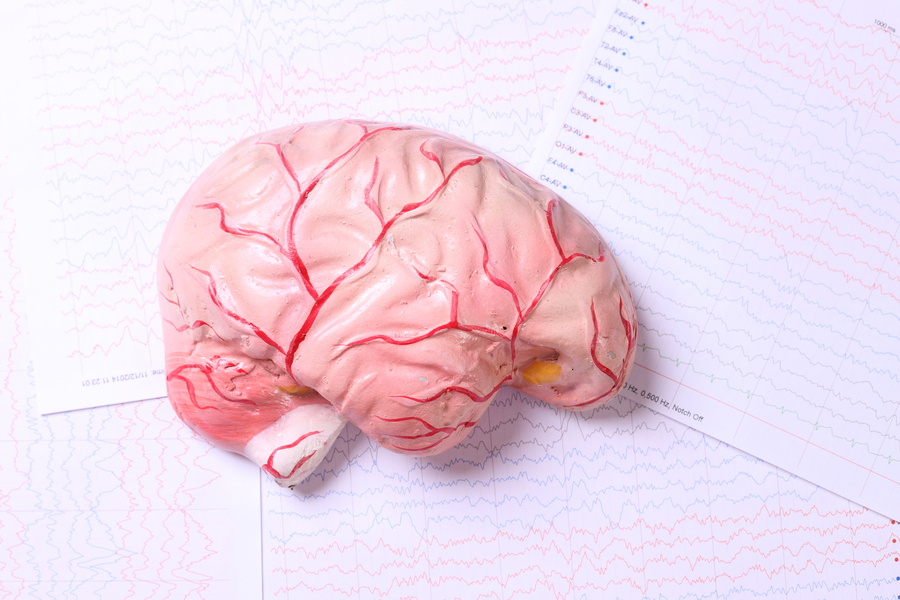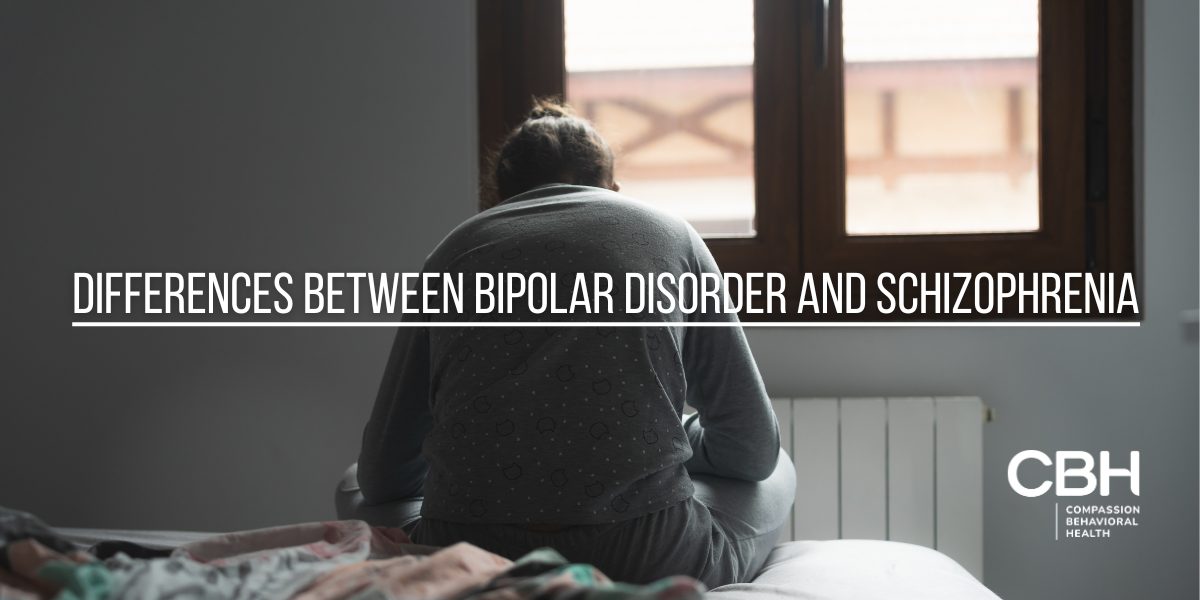Post-traumatic stress disorder (PTSD) is a complex mental health condition that can have a profound impact on a person’s life. While it is often associated with symptoms such as anxiety, nightmares, and flashbacks, there is also evidence to suggest that PTSD may have physical manifestations, including seizures. In this article, we will explore the relationship between PTSD and seizures, including the theories behind this connection, medical research on the topic, and the types of seizures commonly associated with PTSD. We will also look at the diagnosis and PTSD treatment options available for individuals experiencing PTSD-related seizures.
Can PTSD Cause Seizures?
While the connection between PTSD and seizures continues to be explored, there’s evidence indicating that those with PTSD might have a higher susceptibility to seizures.
Understanding PTSD: An Overview
Before diving into the link between PTSD and seizures, it is essential to have a clear understanding of what PTSD entails. PTSD, or Post-Traumatic Stress Disorder, is a psychiatric disorder that occurs in some individuals who have experienced or witnessed a traumatic event. These events can range from natural disasters and car accidents to physical or sexual assault, combat exposure, or other life-threatening situations.
People with PTSD often experience a combination of distressing symptoms, including re-experiencing the trauma through flashbacks, nightmares, or intrusive thoughts. They may also avoid situations or stimuli that remind them of the traumatic event and feel a heightened state of arousal, such as increased irritability or difficulty sleeping.
Defining PTSD
PTSD is classified as a psychiatric disorder according to the Diagnostic and Statistical Manual of Mental Disorders (DSM-5). To receive a PTSD diagnosis, an individual must exhibit specific symptoms for at least one month following a traumatic event. These symptoms must significantly impair their ability to function in various areas of life, such as work, school, or relationships.
PTSD is a complex disorder that affects the brain and body in various ways. It is not a sign of weakness or a character flaw, but rather a natural response to experiencing or witnessing a traumatic event. The brain’s response to trauma involves a complex interplay of neurotransmitters, hormones, and neural pathways.
When a person experiences a traumatic event, their brain’s stress response system becomes activated. This system, which includes the amygdala, hippocampus, and prefrontal cortex, helps the individual respond to threats and danger. In individuals with PTSD, this stress response system becomes dysregulated, leading to an overactive fear response and difficulty regulating emotions.
Common Symptoms of PTSD
The symptoms of PTSD can vary from person to person, but some of the most common ones include:
- Flashbacks and intrusive memories: Individuals with PTSD may experience vivid and distressing memories of the traumatic event, as if they are reliving it.
- Nightmares related to the traumatic event: Sleep disturbances are common in PTSD, with nightmares often centered around the traumatic experience.
- Intense distress when exposed to reminders of the trauma: Certain triggers, such as sights, sounds, or smells associated with the traumatic event, can elicit a strong emotional response in individuals with PTSD.
- Avoidance of people, places, or activities that trigger memories of the trauma: To cope with the distressing memories, individuals with PTSD may go to great lengths to avoid anything that reminds them of the traumatic event.
- Negative changes in beliefs and mood: PTSD can lead to a shift in a person’s worldview, causing them to have negative beliefs about themselves, others, or the world in general. They may also experience a persistent negative mood, such as sadness, anger, or guilt.
- Hypervigilance and heightened startle response: Individuals with PTSD often feel on edge and constantly on the lookout for potential threats. They may have an exaggerated startle response, reacting strongly to sudden or unexpected stimuli.
It is important to note that these symptoms can vary in severity and duration. Some individuals may experience mild symptoms that resolve over time, while others may have more chronic and debilitating symptoms.
Living with PTSD can be challenging, but with the right support and treatment, individuals can learn to manage their symptoms and improve their quality of life. Treatment options for PTSD include therapy, medication, and self-help strategies that focus on reducing symptoms and improving overall well-being.
The Link Between PTSD and Seizures
Post-traumatic stress disorder (PTSD) is a mental health condition that can develop after experiencing or witnessing a traumatic event. While the connection between PTSD and seizures is not yet fully understood, there is growing evidence to suggest that individuals with PTSD may be at a higher risk of experiencing seizures. Further research is needed to establish the exact mechanisms underlying this relationship, but several theories have been proposed.
One theory suggests that the chronic stress and hyperarousal associated with PTSD can lead to changes in the brain’s electrical activity, potentially triggering seizures. The amygdala, a region of the brain involved in the stress response, may play a role in the development of seizure activity. Additionally, alterations in the levels of neurotransmitters, such as glutamate and gamma-aminobutyric acid (GABA), have been observed in individuals with both PTSD and seizures.
Theories Behind PTSD-Induced Seizures
Research has shown that individuals with PTSD often experience heightened levels of stress and anxiety. This chronic state of hyperarousal can have profound effects on the brain, including alterations in electrical activity. The amygdala, which is responsible for processing emotions and fear responses, may become overactive in individuals with PTSD. This hyperactivity can disrupt the normal balance of electrical signals in the brain, potentially leading to seizures.
Furthermore, changes in neurotransmitter levels have been observed in both PTSD and seizure disorders. Glutamate, an excitatory neurotransmitter, is thought to play a role in the development of seizures. In individuals with PTSD, the levels of glutamate may be dysregulated, further increasing the risk of seizure activity. On the other hand, GABA, an inhibitory neurotransmitter, helps to regulate brain activity and prevent excessive electrical discharges. Imbalances in GABA levels have also been implicated in both PTSD and seizures, potentially contributing to the link between the two conditions.
Medical Research on PTSD and Seizures
Understanding the relationship between PTSD and seizures is a complex task that requires careful examination. Several studies have explored this connection, yielding varying results. Some research indicates a higher prevalence of seizures in individuals with PTSD compared to the general population. These findings suggest that there may be a genuine association between the two conditions.
However, it is important to consider the complexities of both PTSD and seizures when interpreting these results. Both conditions can have multiple underlying factors, and it can be challenging to isolate the specific contributions of each. For example, individuals with PTSD may also have comorbid conditions, such as traumatic brain injury or substance abuse, which can independently increase the risk of seizures. Untangling these overlapping factors is an ongoing area of research.
Moreover, the severity and duration of PTSD symptoms may also play a role in the development of seizures. Individuals with more severe PTSD symptoms or those who have experienced trauma repeatedly may be at a higher risk of developing seizure activity. Additionally, the presence of other psychiatric disorders, such as depression or anxiety, can further complicate the relationship between PTSD and seizures.
While the exact mechanisms underlying the link between PTSD and seizures are not yet fully understood, ongoing research continues to shed light on this complex relationship. By better understanding the factors that contribute to the development of seizures in individuals with PTSD, healthcare professionals can improve diagnosis and treatment strategies for these patients.
Types of Seizures Commonly Associated with PTSD
Post-Traumatic Stress Disorder (PTSD) is a complex mental health condition that can have a variety of physical manifestations. One such manifestation is seizures, which can occur in individuals with PTSD. These seizures can manifest in different ways, and the specific type of seizure varies from person to person. Here, we will explore two common types of seizures associated with PTSD in more detail:
Psychogenic Non-Epileptic Seizures (PNES)
Psychogenic non-epileptic seizures (PNES) are events that resemble epileptic seizures but are not caused by abnormal electrical activity in the brain. Instead, these seizures are believed to be triggered by psychological factors, such as emotional distress or trauma. The mind-body connection plays a significant role in PNES, as the brain’s response to psychological stressors can manifest as physical symptoms, including seizures.
PNES can be challenging to differentiate from epileptic seizures, as they may present with similar symptoms. However, specialized medical evaluation, including video electroencephalography (EEG) monitoring, can help distinguish between the two. During an episode of PNES, abnormal brain activity is not observed, further supporting the psychological origin of these seizures.
It is important to note that individuals experiencing PNES are not intentionally faking their seizures. These events are genuine and often a result of the individual’s subconscious response to psychological distress. Treatment for PNES typically involves addressing the underlying psychological factors through therapy, counseling, and other appropriate interventions.
Epileptic Seizures
In addition to psychogenic non-epileptic seizures, individuals with PTSD may also experience epileptic seizures that are unrelated to their psychological distress. Epileptic seizures result from abnormal electrical activity in the brain and can cause a range of symptoms, from mild loss of awareness to convulsions.
The presence of PTSD may influence the frequency or severity of these epileptic seizures, but the exact relationship between the two is not yet fully understood. Research is ongoing to explore the potential mechanisms underlying this connection. It is believed that the physiological changes associated with PTSD, such as alterations in neurotransmitter levels and brain structure, may contribute to an increased susceptibility to epileptic seizures.
Managing epileptic seizures in individuals with PTSD often involves a combination of medication, lifestyle modifications, and therapy. Antiepileptic drugs are commonly prescribed to control seizure activity, while therapy aims to address the underlying PTSD symptoms and provide coping strategies.
In conclusion, seizures can be a challenging aspect of living with PTSD. Understanding the different types of seizures associated with this condition, such as psychogenic non-epileptic seizures and epileptic seizures, is crucial for accurate diagnosis and appropriate treatment. Further research is needed to unravel the complex relationship between PTSD and seizures, ultimately leading to improved management strategies for individuals affected by both conditions.
Diagnosis of PTSD-Related Seizures
Diagnosing PTSD-related seizures requires a comprehensive assessment that considers both the psychological and neurological aspects of the individual’s condition. Medical tests and evaluations by mental health professionals play a crucial role in determining the underlying causes of the seizures and developing an appropriate treatment plan.
Medical Tests and Procedures
The evaluation of seizures typically begins with a thorough medical history and physical examination. Diagnostic tests, such as electroencephalography (EEG), may be used to evaluate brain activity during seizures. Video monitoring may also be employed to capture seizure events and assess their characteristics.
Role of Mental Health Professionals
Mental health professionals, such as psychiatrists, psychologists, or licensed therapists, are essential in the diagnosis of PTSD-related seizures. These professionals conduct comprehensive psychological assessments to evaluate the impact of trauma on the individual and help determine the most appropriate treatment approach.
Treatment Options for PTSD-Related Seizures
When it comes to treating PTSD-related seizures, a multidisciplinary approach is often necessary. The primary goals of treatment include reducing seizure frequency and intensity, managing PTSD symptoms, recovery from PTSD, and improving overall quality of life.
Medications and Therapies
Medications, such as anticonvulsants or psychiatric medications, may be prescribed to manage both the seizures and the symptoms of PTSD. In addition to medications, psychotherapy, such as cognitive-behavioral therapy (CBT) or eye movement desensitization and reprocessing (EMDR), can be effective in addressing the underlying trauma and reducing PTSD symptoms.
Lifestyle Changes and Coping Strategies
Adopting a healthy lifestyle, including regular exercise, stress management techniques, and a balanced diet, can contribute to overall well-being and may help reduce the frequency and severity of seizures in individuals with PTSD. Engaging in activities that promote relaxation and self-care, such as mindfulness or meditation, can also be beneficial.
Individualized Treatment Plan for PTSD
In conclusion, while the relationship between PTSD and seizures is still being elucidated, there is evidence to suggest that individuals with PTSD may be more susceptible to seizures. The complex interplay between psychological and neurological factors makes the diagnosis and treatment of PTSD-related seizures a multifaceted endeavor. It is essential for individuals experiencing seizures and symptoms of PTSD to seek comprehensive evaluation and collaborate with healthcare professionals to develop an individualized treatment plan. With the appropriate support and treatment, individuals can manage their symptoms and improve their overall quality of life.
At Compassion Behavioral Health, we recognize the intricate interplay between the mind and body, particularly in conditions like PTSD. Our multidisciplinary team of professionals is committed to offering a holistic approach to care, addressing both the psychological and physiological manifestations of trauma.
Our personalized treatment programs combine evidence-based therapies, individual counseling, and medical evaluations to create a comprehensive care plan tailored to each patient’s unique needs. Recognizing that every individual’s trauma and subsequent reactions are different, we ensure a deep understanding and compassionate approach in all our interventions.
Our facility offers a safe and supportive environment for individuals to explore their trauma and its impact on their lives. We believe that healing is a journey, and our dedicated team is here to walk alongside our patients at every step. From initial assessment to post-treatment support, we ensure that our patients are empowered with the tools and knowledge they need to rebuild their lives and find a sense of balance and well-being. Call us or contact us online for a quick assessment today.







